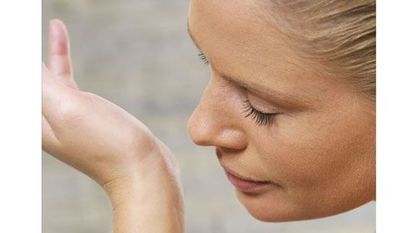
I AM STANDING in the corner with my drink when a scholar or therapist or nonprofit director or artist — these are the kinds of people I know — comes over to chat. So, they ask, what are you writing about these days?
There is a pause while I decide whether or not to tell the truth. Most evenings, I take a sip of my drink and a deep breath, and with the feeling of beginning to run toward the edge of a cliff, I say, Well, I've gotten really interested in perfume.
Another silence falls while my acquaintances look at me — hostile, bored, or slightly interested, but always very puzzled — and then they say, Perfume? You mean, like essential oils?
But I did mean to say perfume, so I have to tell them, No. Not oils. Perfume. And then they say, You mean, you like perfume? (Because surely there is some other reason I'm writing about it.) And I keep going, off the cliff and into the air, and I say, Yes. Yes, I like perfume. Then all communication breaks down and they say, I don't understand. What exactly are we talking about here?
So while I'm falling through the air, I do my best to explain. I trot out perfume's pedigrees, both sacred and profane, the long and winding road from the holy incense of the East to the precious oils that cost Marie Antoinette her head. (The rebels who captured her carriage had never seen her, but they knew only a royal could smell like that.) I tell a few of the secret stories of the perfume world, the perfumer on his knees in the garden trying to re-create the scent of a tiny white flower, the great fields of roses and jasmine reserved for a single scent. If I sense genuine curiosity hidden behind the puzzlement, I tell stories about memory and love, the worlds conjured up by the scents of our childhood, and how perfumers use these to weave new, more-adult memories, the way Jacques Guerlain turned lemon ice and vanilla into the feral darkness of Shalimar, leaving several generations of men to trail after disturbingly edible women. Sometimes, with the wind whistling past my ears and the ground coming up fast below my feet, I face off hostility with brazen effrontery and I say, I like the way perfume forces me to think about art and money, how it is so obviously and unashamedly commercial I can't pretend, the way I sometimes do with other kinds of art, that it's all for some high, pure, romantic purpose, and how, far from tainting its beauty, the sideshow of money makes the best perfume — and art — seem wilder, more real and insistent, and that thinking about these things makes me feel like a citizen of the world.
All these stories are true, and I love telling them. But they are not the plain and delicate thing, the thing I never say (while I am falling, still falling), which is that perfume makes me happy, and that what we are talking about here is pleasure.
The scent of dry summer heat shimmering above asphalt, dusty earth, and the blond grass of the foothills surrounding the city of my childhood. The scent of sun-warmed wood, smooth under your wet cheek when you sprawl on the dock in the middle of the lake. The cool blood scent of wet iron, rain on cobblestones, and a lilac bush one block away. The high, singing scent of lemons fading to the spring green of honeysuckle growing along a creek, and a bit of the muddy banks, too. The scent of night-blooming jasmine, heady and heavy with fruit and a touch of ashtray — the lovers were smoking before they disappeared into the brush. The soft smoke blanket of incense pierced by a fretwork of spice — mace, nutmeg, clove. The scent of peaches ripe to the point of decay, which is also the scent of soft flesh, the most luscious kiss. The thick wine scent of honey, viscous at the back of the throat, lit from within by the flowers it came from and the golden sunlight of late summer. The sweet grass scent of new hay, the horses somewhere nearby. The scent of salt, of seawater dried on skin. The acrid tang of chlorine — seawater abstracted, metallized — and clean sweat. The close musk of warm, sleeping bodies, of tangled sheets, of the still-warm pillow. The waxy animal-fur scent of human hair breathed in at the nape of another's neck.
Stay In The Know
Marie Claire email subscribers get intel on fashion and beauty trends, hot-off-the-press celebrity news, and more. Sign up here.
These are a few of my perfumes.
When I give my long-winded defense of perfume, there is always someone whose eyes light up, someone who leans in closer, and it is almost always a woman. Almost always, someone blushes and stays silent, trying not to smile. And often, someone gets my phone number so that we can sneak off by ourselves later and meet up at my house, for wine and more talk, and to smell the perfumes themselves and see if we can find something, or many things, for her to love.
When we are finally sitting down together, these women tell me stories. What they tell me is not always about perfume, but it is always about pleasure. They aren't always easy stories to tell — pleasure remembered is so often pleasure lost or denied — but they tell them anyway, in between sips of wine and exclamations over one scent or another.
The documentary filmmaker, all nerves and bones, inhales the boozy amber I've found for her, a rare, perfect first guess, and tells me about the breakdown she had when she went to France in her early 20s and how her Parisian aunt cured her by taking her to buy silk stockings, makeup, a corset, and perfume. "She told me I had to learn how to accept myself as a woman. That's so wrong, isn't it? But they were lovely things. And oh, how I loved that perfume!" The counselor who works the emergency phone line at the battered women's shelter tries on a series of scents, looking each time for something still deeper, richer, more, and she talks about how for years she kept her blonde hair short and her face scrubbed clean because her lipstick and tresses made her an object of suspicion among her peers. The director of an after-school program for kids from low-income families, herself a survivor of poverty and worse, flushes at her own audacity when she tells me how much she likes the scent of whiskey and leather. Closing her eyes over a memory, she sighs. "And sweat. Is there one with whiskey, leather, and sweat?" (There is — more than one.) They tell me, these women, a little bit about who they are and what they want.
While we talk, the world, with all of its terrible troubles, rolls on. There will never be enough money. There will never be enough time. There will always be more work to do. But every now and then we find a small extra thing, a necessary sweetness, that keeps us from believing we know everything and all the news is bad. The wild card that leads to one of those hairpin turns in a life story, when the grim facts shake themselves loose and we find ourselves in a new and unexpected place. The utterly unlikely thing. The beautiful surprise.
And that, more than anything else, is what perfume has been for me. For many years, I thought the answer to my troubles — and maybe the troubles of the world, too — was vigilance and hard work. I thought I understood frivolous, treacherous things like perfume and the kind of people who loved them. I thought I knew who I was, what I had to do, and what was coming next. But I was wrong about all of it — wonderfully, gloriously wrong.
Adapted from Coming to My Senses by Alyssa Harad (Viking), on shelves July 5.
Copyright Alyssa Harad, 2012
-
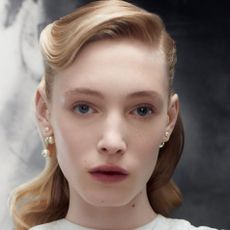 Bitten Lips Took Center Stage at Dior Fall 2024 Show
Bitten Lips Took Center Stage at Dior Fall 2024 ShowModels at the Dior Fall 2024 show paired bitten lips with bare skin, a beauty trend that will take precedence this season.
By Deena Campbell Published
-
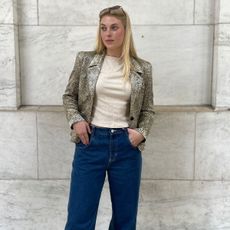 30 Spring Items That Solve My Expensive-Taste-on-a-Humble-Budget Dilemma
30 Spring Items That Solve My Expensive-Taste-on-a-Humble-Budget DilemmaSee every under-$300 spring item on my wish list.
By Natalie Gray Herder Published
-
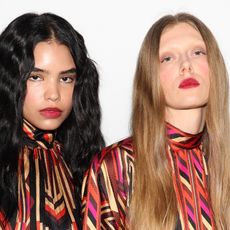 Your Makeup Won't Budge With These Setting Sprays
Your Makeup Won't Budge With These Setting SpraysPrepare for 12-hour wear.
By Sophia Vilensky Published
-
 The 32 Best Hair Growth Shampoos of 2024, According to Experts
The 32 Best Hair Growth Shampoos of 2024, According to ExpertsRapunzel hair, coming right up.
By Gabrielle Ulubay Published
-
 The 20 Best Hair Masks for Damaged Hair, According to Experts and Editors
The 20 Best Hair Masks for Damaged Hair, According to Experts and EditorsHealthy strands, here we come!
By Gabrielle Ulubay Last updated
-
 How Often You Should Wash Your Hair, According To Experts
How Often You Should Wash Your Hair, According To ExpertsKeep it fresh, my friends.
By Gabrielle Ulubay Published
-
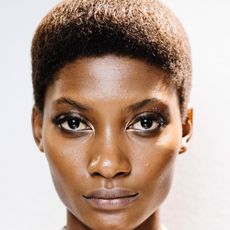 The 11 Best Magnetic Lashes of 2023
The 11 Best Magnetic Lashes of 2023Go ahead and kiss your messy lash glue goodbye.
By Hana Hong Published
-
 Beauty Advent Calendars Make the Perfect Holiday Gift
Beauty Advent Calendars Make the Perfect Holiday GiftThe gift that keeps on giving.
By Julia Marzovilla Last updated
-
 The 18 Best Natural Hair Products in 2023
The 18 Best Natural Hair Products in 2023Remember: Your curls are your crown.
By Gabrielle Ulubay Published
-
 The 9 Best Hot Rollers for the Curls of Your Dreams
The 9 Best Hot Rollers for the Curls of Your DreamsThis is how we roll.
By Samantha Holender Published
-
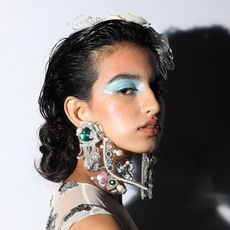 The 12 Best Cream Eyeshadows, According to Makeup Artists
The 12 Best Cream Eyeshadows, According to Makeup ArtistsThe best part? They’re so easy to apply.
By Samantha Holender Published